Social Challenge

Can sports provide a platform for individuals to challenge themselves and reach their full potential ?
**Summary:** This essay posits that sports provide a comprehensive platform for individuals to challenge themselves and reach their full potential. It explores how sports offer psychological benefits such as mental toughness, goal setting, and confidence building; physiological benefits including improved physical fitness, skill development, and resilience; and social benefits like teamwork, leadership, and camaraderie. Personal stories of overcoming adversity further underscore the transformative power of sports in personal growth. The conclusion affirms that sports are not just about physical activity but are a means to unlock human potential holistically.

Can social media platforms be used to enhance social harmony ?
Can social media platforms be used to enhance social harmony? The text discusses the positive impact of social media on social harmony, including connectivity and communication, sharing information and ideas, and civic engagement and activism. However, it also highlights challenges and risks such as misinformation and fake news, online harassment and cyberbullying, and echo chambers and polarization. The conclusion states that social media platforms have the potential to enhance social harmony, but challenges must be addressed to ensure their positive impact.

Can social distancing be implemented in schools and universities effectively ?
Social distancing is crucial to prevent the spread of infectious diseases, but implementing it in educational institutions like schools and universities can be challenging. Challenges include limited classroom space, managing student interaction outside of the classroom, and ensuring staff training and compliance. Effective strategies for implementing social distancing in these environments include classroom redesign, virtual learning options, signage and reminders, and monitoring and enforcement. By prioritizing health and safety, educational institutions can contribute to controlling the spread of infectious diseases while continuing to provide quality education.

How does climate change affect social structures and relationships ?
The impact of climate change extends beyond environmental changes to significantly affect social structures and human relationships. This includes alterations in living conditions such as resource scarcity and habitat loss, economic disruptions like job market fluctuations and industry adaptations, increased social stress and migration, health implications including direct effects and mental health considerations, political and governance challenges involving policy implementation and legal frameworks, and cultural shifts towards environmental consciousness and education. These transformations necessitate societal adaptation and evolution to confront the multifaceted challenges posed by a changing climate.

How does climate change impact the social and economic development of countries hosting climate refugees ?
Climate change leads to displacement of people, creating challenges for hosting countries in social and economic development. Social impacts include increased population, cultural conflicts, security concerns, and integration challenges. Economic impacts involve strained resources, unemployment issues, depletion of natural resources, and financial burden. Addressing these challenges requires coordinated efforts from various stakeholders.

What are the main challenges faced by low-income countries in achieving sustainable development ?
Low-income countries face numerous challenges in achieving sustainable development, including poverty reduction, environmental protection, social inclusion, and institutional capacity. Addressing these challenges requires a comprehensive approach that involves collaboration between governments, civil society organizations, and international partners.

How can I balance my love for sports with a busy social life ?
Balancing sports and a bustling social life can be challenging. Here are some strategies to help manage both without sacrificing one for the other: 1. Prioritize and plan activities by making a schedule and planning ahead. 2. Incorporate sports into your social life by joining a sports club or organizing sports events with friends. 3. Learn to say no to invitations that conflict with your sports commitments, and set boundaries with your friends. 4. Utilize time efficiently by doing shorter, intense workouts and combining socializing with light exercise. 5. Take care of yourself by having rest days and taking time to relax and unwind. By following these strategies, you can enjoy both your love for sports and an active social life, leading to a healthier and more balanced lifestyle.

What are the main challenges in achieving carbon neutrality ?
Achieving carbon neutrality is a complex and multifaceted challenge that requires a coordinated effort from governments, businesses, and individuals. Some of the main challenges include economic implications, technological barriers, political will, public awareness and participation, natural resource constraints, energy demand growth, existing lock-in effects, legislative and regulatory hurdles, cultural and social factors, and research and development needs. It's a daunting task, but one that is necessary for the long-term health of our planet.
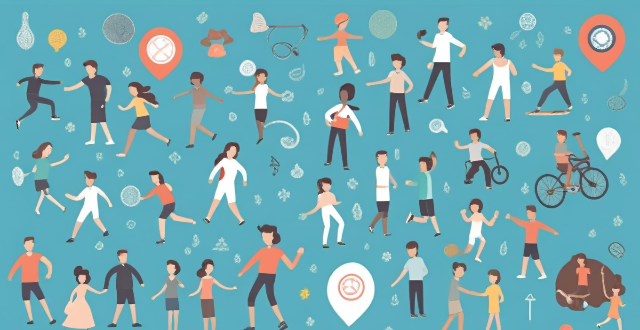
What role do sports stars and influencers have in promoting social inclusion and diversity ?
The role of sports stars and influencers in promoting social inclusion and diversity is significant. They break down barriers by enhancing visibility and representation of diverse groups, serve as positive role models, promote inclusive practices in sports, and drive social change through collaborations and partnerships. Their actions help create an accepting and inclusive society where everyone feels valued and respected regardless of their background or identity.

What are the best practices for social media advertising ?
Best practices for social media advertising include defining goals, understanding the audience, choosing the right platform, creating compelling content, optimizing for mobile devices, testing and refining ads, monitoring budget, leveraging social proof, and staying up-to-date with platform changes. These strategies help achieve better results in terms of engagement, lead generation, and sales.

What are the social implications of environmental degradation ?
The article discusses the social implications of environmental degradation, including health impacts such as air pollution and water pollution, economic impacts such as loss of biodiversity and job losses, social impacts such as displacement and cultural loss, and political impacts such as conflicts and refugees. It emphasizes the need for collective action to address these challenges and protect the natural environment for future generations.

How does social harmony impact economic development and stability ?
Social harmony is essential for economic development and stability, as it increases productivity, reduces conflict, improves governance, attracts foreign investment, and enhances social cohesion.

What are the social consequences of natural disasters caused by climate change ?
Natural disasters, intensified by climate change, have extensive social repercussions affecting health, economy, social order, education, and the environment. Immediate impacts include physical harm and mental distress, while long-term effects range from economic setbacks to environmental degradation. Addressing these consequences necessitates a multifaceted strategy encompassing emergency measures, recovery efforts, and sustainable development practices to foster community resilience.

What are the psychological effects of social media on teenagers ?
This article discusses the psychological effects of social media on teenagers, including increased anxiety and depression due to comparison with others' lives, fear of missing out (FOMO), cyberbullying, disrupted sleep patterns, decreased face-to-face interaction, body image issues, and cyberchondria. Parents and educators should monitor their children's social media usage and encourage healthy habits to help them navigate these challenges.

What challenges do we face in achieving a continuous supply of sustainable energy ?
The challenges to achieving a continuous supply of sustainable energy include technological limitations, economic barriers, political and social factors, infrastructure and grid integration issues, and environmental impacts. Addressing these challenges requires collaboration between governments, businesses, and individuals to work towards a more sustainable future for our planet.

Can you provide examples of female-driven social enterprises that combine business with philanthropy ?
Female-driven social enterprises are combining business with philanthropy to create positive change in society, empowering marginalized individuals and promoting sustainability. Examples include Samasource, Prodigy Finance, Kiva, S'well, and Girlfriend Collective. These organizations demonstrate the power of women in driving social impact through sustainable business practices.

How should a woman respond to compliments in a social situation ?
The text is a topic summary on how women should respond to compliments in social situations. It suggests that they acknowledge the compliment, be sincere, optionally return the compliment, keep the conversation going, avoid being defensive, and maintain eye contact. The tips aim to help women navigate this aspect of social interactions effectively and leave a positive impression on others.

How does sports improve social skills ?
Sports significantly enhance social skills through teamwork, confidence-building, dealing with diversity, interpersonal development, and leadership. Participation fosters cooperation, communication, shared responsibility, achievement, resilience, public performance, acceptance, adaptability, respect, networking, empathy, conflict resolution, role assumption, motivation, and decision-making. These skills are transferable to various aspects of life, making sports a valuable platform for personal growth and social interaction.

Is there a difference between male and female social etiquette, and if so, what are they ?
The text explores the differences in social etiquette between men and women, highlighting key areas such as greetings, dress code, conversation topics, body language, emotional display, politeness, interaction with authority figures, and handling criticism. While there are traditional expectations for each gender, individual personality and cultural background significantly influence these behaviors. As societal norms change, distinctions in male and female social etiquette are becoming less defined, promoting greater flexibility and personal expression across genders.

Can team sports help with social anxiety ?
Team sports can potentially help individuals with social anxiety by providing a supportive environment for exposure therapy, building confidence, offering positive reinforcement, distracting from self-consciousness, and developing social skills. However, professional guidance should be sought if social anxiety significantly impacts one's life.

How has social media impacted public climate awareness ?
In this topic summary, we examine the multifaceted impact of social media on public climate awareness. We explore how social media amplifies climate conversations, facilitates education and awareness campaigns, spreads misinformation and echo chambers, and fosters community building and collaboration. While social media has increased visibility and accessibility of climate-related content, it also presents challenges such as misinformation and polarized discourse. To harness its full potential, promoting accurate information and constructive dialogue is crucial for driving action towards a more sustainable future.
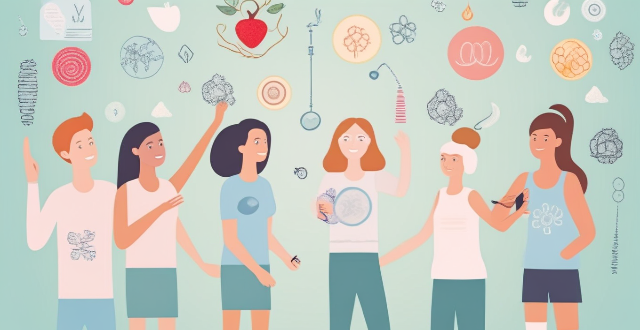
What are the key challenges faced by female-centric non-profit organizations, and how can they be overcome ?
Female-centric non-profit organizations face several key challenges, including limited funding and resources, lack of visibility and recognition, gender bias and stereotyping, limited access to technology and digital tools, and balancing advocacy and service delivery. To overcome these challenges, organizations can explore alternative funding sources, increase visibility through social media and community events, prioritize diversity and inclusion, leverage cost-effective technology solutions, and build alliances with other organizations. By addressing these challenges, female-centric non-profit organizations can effectively support women and girls and create positive change in their communities.
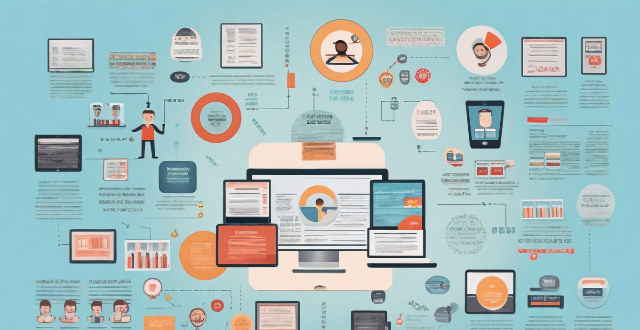
How does social media influence consumer behavior ?
Social media has transformed consumer behavior by increasing brand awareness, influencing purchasing habits, and changing perceptions of brands. It enables consumers to compare products, share feedback, and engage with companies directly. Social media also plays a crucial role in product development by providing insights into consumer needs and preferences. Companies can foster customer loyalty through engagement and exclusive deals on these platforms. The rise of social commerce allows for direct purchases within apps and live streaming sales events. Personalization and targeted marketing, including influencer collaborations, further impact consumer choices. Overall, social media's influence on consumer behavior is significant and continues to evolve with technological advancements.

What are the key factors that contribute to social harmony ?
Social harmony is a state of peaceful coexistence and cooperation among individuals, groups, and communities within a society. Key factors contributing to social harmony include respect for diversity, communication and dialogue, education and awareness, equality and fairness, law and order, civic participation and volunteerism, and economic stability and prosperity. By promoting these factors, societies can create a more peaceful and cooperative environment where everyone can thrive.

What are the essential female social etiquette rules to follow ?
Essential female social etiquette rules to follow include dressing appropriately, being punctual, using good manners, being respectful, using proper table manners, being mindful of your body language, and showing gratitude. Following these rules can help women navigate social situations with ease and confidence.

What is social inclusion and why is it important ?
Social inclusion refers to the process of ensuring that all individuals can participate in all aspects of society. It aims to create a society where everyone feels valued, regardless of their background. Key elements include equal opportunities, non-discrimination, participation, empowerment, and solidarity. Social inclusion is important for promoting equity and fairness, enhancing economic growth, improving health and well-being, reducing poverty and exclusion, enhancing social cohesion, and supporting sustainable development.
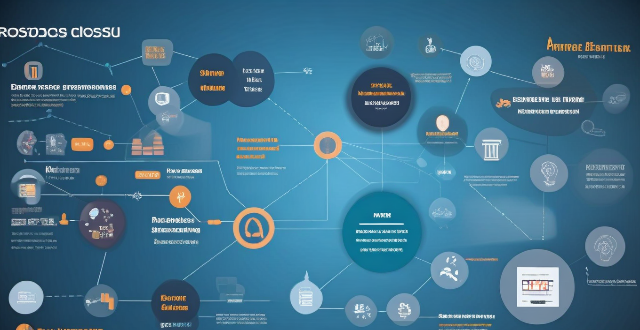
What is Environmental, Social, and Governance (ESG) ?
Environmental, Social, and Governance (ESG) is a framework used by investors to assess the sustainability and ethical impact of companies in which they invest. It is a set of criteria that helps investors evaluate a company's performance in three key areas: environmental stewardship, social responsibility, and corporate governance. By considering these factors, investors can make informed decisions about where to allocate their capital and support companies that prioritize sustainable practices and positive societal impact. The environmental aspect focuses on reducing greenhouse gas emissions, conserving resources, and protecting biodiversity. The social aspect emphasizes diversity, inclusion, labor rights, and community involvement. The governance aspect focuses on board composition, risk management, and stakeholder engagement. Overall, ESG helps investors support companies that prioritize sustainable practices and positive societal impact.
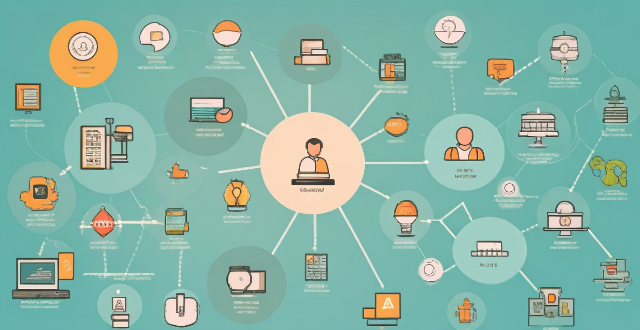
What is social engineering in the context of cybersecurity ?
Social engineering refers to the psychological manipulation of individuals or groups into divulging confidential information. This tactic is often employed by cybercriminals to gain access to sensitive data, systems, or networks without being detected. In the context of cybersecurity, social engineering is a significant threat that exploits human behavior rather than technical vulnerabilities. There are several types of social engineering attacks, including phishing attacks, pretexting, baiting, quid pro quo attacks, tailgating or piggybacking, vishing (voice phishing), and smishing (SMS phishing). To protect against social engineering attacks, organizations can implement education and awareness programs, policies and procedures, technology tools, and an incident response plan. By understanding the various types of social engineering attacks and implementing appropriate countermeasures, organizations can significantly reduce their risk of falling victim to these deceptive tactics.

What are some examples of successful corporate social responsibility programs ?
Successful Corporate Social Responsibility (CSR) programs benefit society and the environment, enhancing a company's reputation. Examples include Starbucks supporting coffee farmers, Coca-Cola providing clean water in Africa, Unilever reducing carbon emissions, Microsoft using AI for environmental solutions, Walmart reducing food waste, Google powering operations with renewable energy, Patagonia donating to environmental causes, and Johnson & Johnson raising funds through social media engagement. These programs not only make a positive impact but also strengthen relationships with stakeholders.

How does one's personal hygiene affect their social interactions ?
Personal hygiene is crucial for positive social interactions, boosting confidence, and maintaining good health. Good hygiene habits include regular bathing, teeth brushing, wearing clean clothes, hand washing, and taking care of skin and hair. Poor hygiene can lead to social isolation, misunderstandings, and health risks. Following simple tips can ensure that personal hygiene positively impacts social interactions.